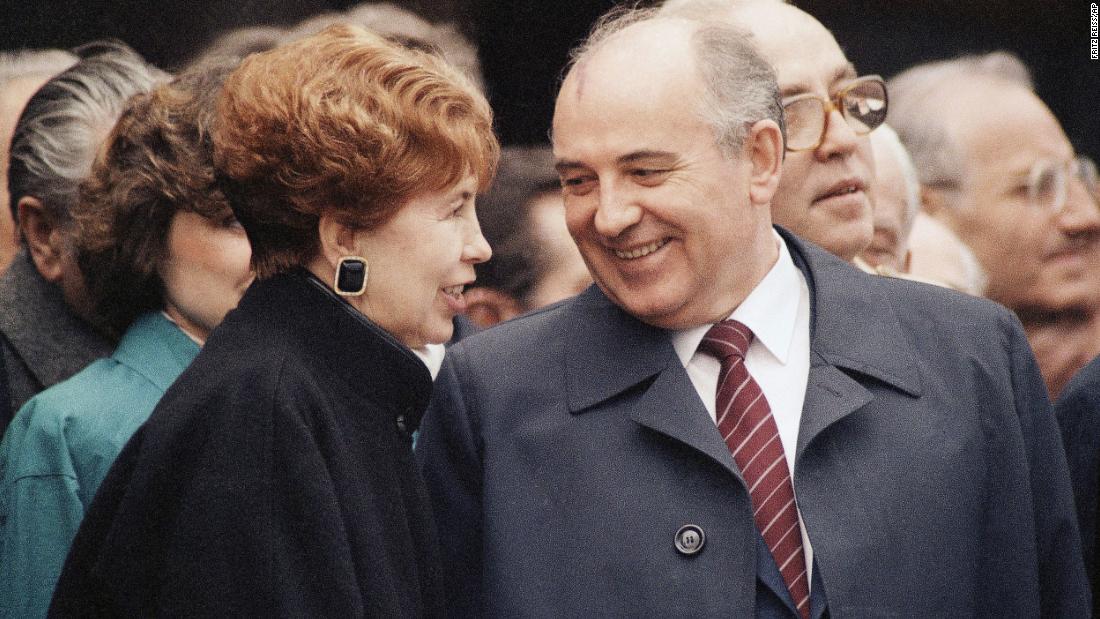But Gorbachev, the first — and last — to bear the title of Soviet president, was unlike any of these other men. After him, the Cold War, and the Soviet Union, were no more. And, unlike those hard men, buried in their own tomb or in the Kremlin Wall necropolis, Gorbachev will be laid to rest in Novodevichy Cemetery next to his wife, Raisa Gorbacheva, the woman with whom he shared an unending love affair.
Until Raisa came on the world stage, most wives of Soviet leaders were dowdy matrons, confined to the shadows of public life. Suddenly, there she was, a self-assured, highly-educated woman who shared in the transformation of Soviet society that was her husband’s mission, making her a heroine to some of her fellow citizens and an object of scorn to others.
As Gorbachev rose in the ranks of the Soviet leadership, he always put Raisa first, talking to her by phone, he said, several times a day. The most traumatic moment in their public — and personal — lives came in August 1991, when hard-liners launched a coup against Gorbachev and his reforms, holding the couple in isolation at their Crimea residence. They were freed after three days, but Raisa suffered a stroke. In July 1999, she was diagnosed with leukemia and flew to Germany for treatment. Two months later, she died at the age of 67, just days before their 46th wedding anniversary.
I reported on the memorial service, for Raisa, held at the Russian Cultural Foundation, just one of the many civic institutions she supported. Sitting sadly by her coffin were her husband, their only child, Irina, and Raisa’s sister, Tatyana
That day, I spoke with several people who came to pay tribute to Raisa, including a woman close to Raisa’s age who told me: “She was born at a difficult time, and she accomplished everything thanks to her own efforts, with her own intelligence. Thank God we have women like her!”
She was asked how she would describe the former president. “Romantic, very human, naïve, a sense of humor about himself, a pacifist, modest – all characteristics not needed in politics.”
One of Mikhail Gorbachev’s greatest gifts to his fellow Russians was inspiring them to break free from the shackles of Soviet uniformity, to be individuals who live their lives based on personal freedom — freedom to make their own choices, read what they wanted to read, discuss what they wanted to discuss.
He himself was a real person, a “chelovek,” as the Russians say, and so was his partner in life, Raisa.

